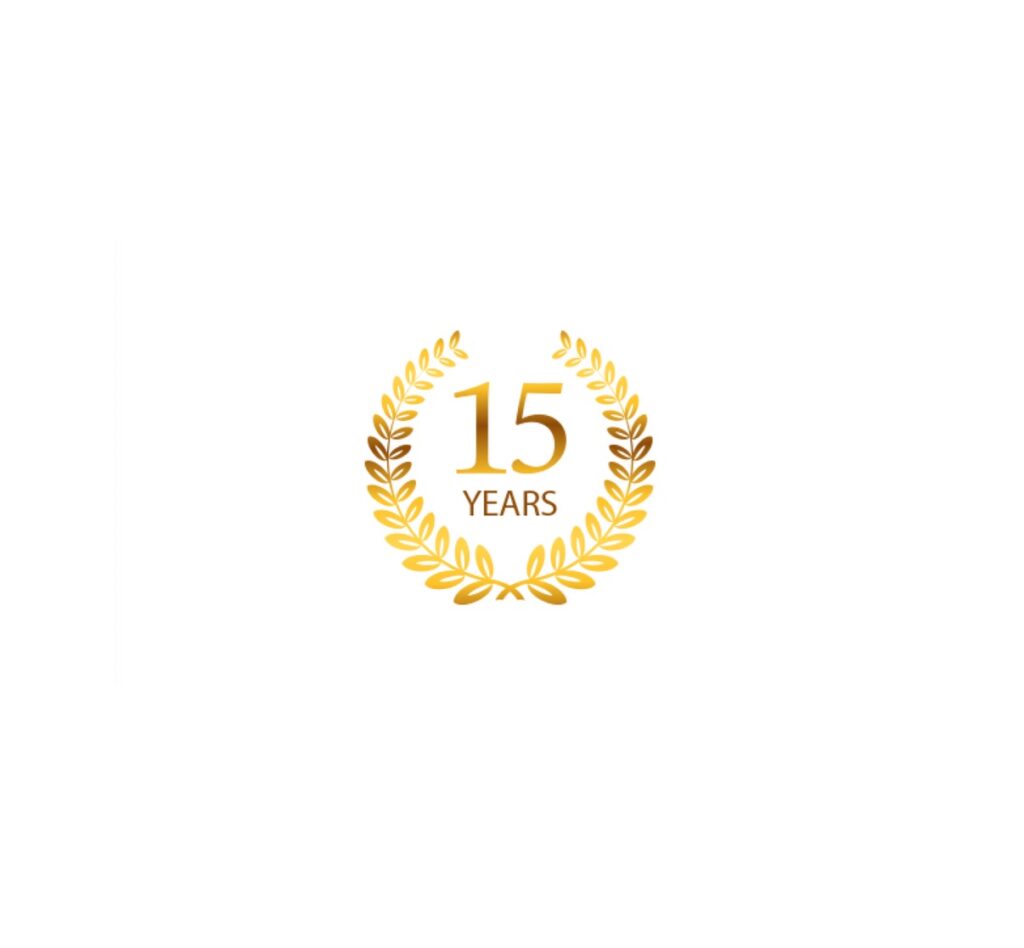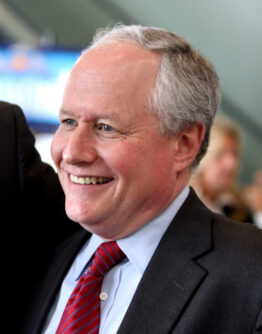Really thinking afresh.
Many have long thought that “the key to success for conservative philanthropy is its willingness to give imaginatively and consistently, and according to a larger, coherent vision …. But what is the conservative vision for American today? And how can philanthropy best promote it?”
Those were the general questions posed by the Hudson Institute’s Bradley Center for Philanthropy & Civic Renewal at the first Bradley Symposium in Washington, D.C., 15 years ago this month, “Vision and Philanthropy.” They’re certainly still being asked today—maybe even more pointedly, given all of that which has occurred in the interim.
The Symposia used to be held on the mornings of the Bradley Prizes evening gala. That first one in 2005, moderated by Amy Kass, occurred amidst what might now be considered quite-heady times for conservatism. President George W. Bush had just been inaugurated to his second term, and reading the event’s edited transcript, one can certainly sense an overriding confidence—but, maybe in between the lines, a little bit of an underlying disquiet about the future, as well.
The Giving Review has gathered comments from some panelists who participated in the discussion, merely seeking any brief updates, reconsiderations, reiterations, and/or revisions they might be willing to share.
As conservatives, what did we get and do right since then? What did we miss and/or do wrong? How can we do better? Where could and should we be after the next 15 years, in 2035? How can philanthropy help get us there? How can it do better?
Juxtaposed with excerpts of his original comments in 2005, below are William Kristol’s comments. In ’05, Kristol was editor of The Weekly Standard. He is now editor-at-large of The Bulwark.
Edited excerpts from William Kristol at “Vision and Philanthropy” symposium, February 2005:
Well, just an obvious point that I don’t think has been said straightforwardly, which is in answer to the question, What is the conservative vision for America today? The obviously correct answer is there is no one conservative vision. I believe it’s also obviously correct that there has never been one conservative vision, and there shouldn’t be one conservative vision. And I guess I—it’s too easy to pick a sentence that someone wrote to stimulate discussion and criticize it—and this one has done a good job of it, but I would object, I guess, to the notion that we would be better off somehow if there were one conservative vision.
In fact, I went back recently and read some early issues of National Review, which is 50 years old now, and early issues of The Public Interest, which is 40 years old, and Modern Age, and other sort of conservative journals. There has always been incredibly vigorous debate at both the sort of philosophical and theoretical levels among conservatives, and practical levels. Bitter fights. You know, we think of them now that they’re bitter fights between neoconservatives and paleoconservatives, but I think Murray Rothbard, a leading libertarian thinker and economist, bitterly denounced mainstream American conservatism in 19—what was it, ’68 or something like that? I mean, the splits go way back, and they were a mark of health, not of the opposite.
***
I think always the best advice to give philanthropists is to do on a big scale what you would want to do on a small scale. Sometimes these things can be over-thought. The best way to help the culture is to help institutions that evidently out there are helping people in one way or another—strengthening families, reducing dependency, helping poor kids, helping various aspects of cultural renewal. And I do think one should be guided in some ways by the evidence, by reality as much as by some theories of what may happen.
…
[T]he fall of Communism was probably the great instance of our time, and it’s very hard even after the fact to know what were the most-effective things philanthropists did to help. Was it just supporting Reagan and the military buildup, which is the actual core of what began the change in the Soviet Union? Was it the funding of various democracy groups in Eastern Europe and in Russia itself—support for dissidents? Was it funding of—was it the accident, if it was an accident – of Pope John Paul coming to power and the reviving of a sort of religious impulse against Communism?
A lot of things happened at once. There was Havel; there was the Pope; there was Reagan. It’s hard to know how they all fit together. And philanthropists who helped any of those efforts would have done the right thing and it doesn’t require some settling ahead of time the question of what is most effective—the kind of religious assault on Communism or the liberal dissident/Vaclav Havel assault, or just a strong U.S. being willing to stand up for its principles and interests around the world.
So I am on this, too, a bit of an agnostic as to exactly which efforts make sense, but I think—and it’s very hard to predict ahead of time, as I say, which end up paying off and which don’t. I’m really struck by the degree to which—even on culture, which seems like it is subject to such macro forces and, you know, deep trends, and deep problems of modernity, and therefore, these things are hard to turn around—things can turn around faster than people expect. I mean, no one expected crime and welfare to decline as rapidly as they did in the ‘90s and some of that was due to cultural factors, and some of it was due to Rudy Giuliani and others coming to power in key cities and pursuing key public policies.
So if you really want to help poor kids in New York, are you better off funding a lot of faith-based institutions that worked on them sort of through the culture and through society or were you better off just helping Rudy Giuliani become mayor and implement crime policies that were incredibly effective and incredibly important to the revitalization of the city? I think both or all of these efforts are very important. But I [counsel] against despair; I really do think that there are a lot of trends going both ways, but we could be almost as easily surprised on the upside as on the downside.
***
I very much agree that from an intellectual point of view—from a cultural point of view, I don’t know how important the universities are—but from the intellectual point of view, from the point of view of serious scholarship and real thinking, I think the universities are the great problem that needs to be thought of in a couple of different ways: One, we must do whatever we can within the universities to establish pockets of seriousness and excellence, and true diversity.
And there I think we can use the left’s infatuation with diversity against it—I mean, is there a less diverse place? Literally—I mean, just in a very simple empirical way—are there less diverse institutions in America than our elite institutions of higher education? I don’t think so. They are literally less diverse in the sense of the views of the people who inhabit them and what is permitted to be said than the military, most religious institutions I know of, business, government—all of these other institutions that actually have reasons for constraining diversity. Universities, which are supposed to be the place of genuine intellectual diversity, have the least. So I think it’s extremely important to push on that front.
William Kristol today:
As conservatives, what did we get and do right since then? What did we miss and/or do wrong? How can we do better? Where could and should we be after the next 15 years, in 2035? How can philanthropy help get us there? How can it do better?
Along the lines of my contribution way back when, I’ll reiterate that I (we) don’t know, that predicting the future is impossible, and that sometimes the less likely paths get taken by polities and societies. So I’d maintain an attitude of humility and a practice of diversity of effort.
Having said that, I certainly didn’t expect the collapse of conservatism into demagogic populism. I don’t know if that collapse is temporary or permanent. But I don’t think we can take it for granted that it’s temporary, or that the effects won’t be long-lasting. And we may be seeing the end of an era. American conservatism had a good run—basically 1955-2015, 70 years—and did a lot of good for the country. But perhaps it’s time for us to liberate ourselves from thinking about conservatism (and liberalism), and just think about the health of our polity, the conditions of liberty, the future of our economy and society. Obviously, principles don’t change. But how they get put into practice, their institutional manifestations, the political agendas they give rise to—those do change. And they seem to be in pretty considerable flux.
So maybe it really is the case today, as Lincoln put it, that “The dogmas of the quiet past are inadequate to the stormy present. The occasion is piled high with difficulty, and we must rise with the occasion. As our case is new, so we must think anew and act anew.” Again, Lincoln very much was a defender of certain principles of the past, and we should by no means abandon then. But really thinking afresh—I guess that’s my #1 recommendation.





